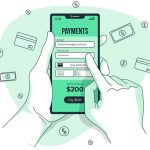What Does a VPN Hide? (And What It Doesn’t)

What does a VPN hide, exactly? And what doesn’t it hide?
We’ll do our best to answer those questions in this guide. We have a full FAQ section down below, so feel free to skip to the question that interests you the most.
What Does a VPN Hide?
Here’s a list of the main things a VPN hides:
1. Your IP Address
When you browse the web without a VPN, everyone can see your IP address – websites, hackers, surveillance agencies, advertisers. The list goes on and on, really.
You don’t need us to tell you why that’s a big problem … but we’ll do it anyway.
Basically, it takes all the fun out of going online. What you browse on the web isn’t just between you and your screen. Pretty much everyone can associate your IP address with your online preferences.
For example, online advertisers will know that your IP communicates often with sites that sell craft beer or Christmas decorations. So, they’ll start spamming you with targeted ads about those things. The sites you visit know your IP, so they can deliver those ads to you.
Some people might find those ads useful. But, for most of us, they’re downright creepy and annoying.
Well, if you use a VPN, that’s no longer a problem. The service hides your IP address by routing your traffic through a VPN server. Basically, your connection will look like this:
You → ISP Network → VPN Server → Internet
You’ll essentially communicate with the web through the VPN’s IP. So, any site you visit will only see the VPN’s IP address.
Oh, and here’s another cool thing – by hiding your IP address, VPNs help you bypass firewalls. You’re not browsing the web through an IP that has firewall restrictions linked to it anymore, after all.
2. Your Geo-Location
When websites see your IP address, they don’t just have a way to track you online and associate your online preferences to you. They’re also able to tell exactly where you’re from. In case you didn’t know, your IP actually reveals a lot of data about you:
- What country and city you are from.
- What your ZIP code is (not all the time, but still).
- Who your ISP is.
If you’re not concerned about your online privacy, that seems pretty harmless, right?
Well, it isn’t. If websites know your geo-location, they can do this:
- Use geo-blocks to stop you from interacting with various content – like watching specific titles on Netflix or using sites like Hulu and Pandora.
- Use geographical price discrimination to display different prices to you based on your geo-location. For example, if you’re from the US, you might see higher prices than if you were from Poland or India.
Since VPNs hide your IP address, nobody will see your geo-location anymore. Any site you visit will just think your location matches the geographical range of the VPN’s IP address. So if you use a US VPN server, it’ll look like your traffic is coming from the US.
Translated, that means you can use a VPN to unblock any content you want (movies, TV series, radio stations, news sites, etc.) and even save money (on car rentals, bookings, video games, or airplane tickets, for instance).
3. Your Traffic
When you go online at home or use public WiFi, your ISP and cybercriminals can eavesdrop on your Internet traffic. That way, they can see your online activities. Hackers can use that information to target you with MITM attacks. And your ISP can use that knowledge to selectively throttle your bandwidth.
All in all, it doesn’t sound good for you.
So how can a VPN help?
It’s simple – the service encrypts your traffic end-to-end. That’s just a fancy way of saying that nobody will be able to spy on your traffic anymore. If they try to do that, they’ll just see gibberish.
Let’s say you’re visiting Facebook while using a VPN. Anyone who tries to monitor your traffic won’t see connection requests heading to facebook.com. Instead, they’ll just see this: Bi1spxg7jr6pkgaX7tjzZQ==.
The perks are pretty obvious: with a VPN, hackers can’t steal your data, and your ISP can’t lower your speeds for specific online services.
If you’d like to know how the encryption-decryption process works with a VPN, here’s a brief overview:
- You use a VPN app to connect to a VPN server.
- The two establish an encrypted connection. Any data that passes through it is surveillance-proof.
- When you visit a site, the app encrypts your traffic and sends it to the server.
- The VPN server receives your traffic, decrypts it, and sends it to its destination (the site you want to visit).
- Then, the VPN server receives the content you requested. It encrypts it, and sends it to the VPN app.
- The app receives the data and decrypts it so that you can view it.
It sounds like a lengthy process, but don’t worry – in reality, it’s very quick. It won’t even take a second!
4. Your VPN Usage (Maybe)
We say maybe because not all VPNs can do this. But if the provider uses obfuscation, their service can hide the fact that you’re using a VPN in the first place.
Basically, your ISP and government won’t see that you’re using the OpenVPN protocol. Instead, they’ll just see regular HTTPS or HTTP traffic (depending on which obfuscation method the VPN uses).
Overall, this is a pretty handy perk that helps you stay under the radar if your government doesn’t approve of people using VPNs. Or if your ISP has a problem with VPNs and throttles VPN traffic.
Hide All Your Data with CactusVPN Today!
If you need a reliable way to protect your online privacy and bypass annoying content restrictions, CactusVPN is the right service for you.
We offer powerful encryption, secure protocols (IKEv2, SSTP, OpenVPN, SoftEther, WireGuard), and user-friendly apps with an intuitive design for pretty much all platforms.
And on top of that, we also offer obfuscation through obfsproxy. So you can easily keep your VPN activities on the downlow!
Oh, and to make sure you get a really enjoyable streaming experience, we also offer high-speed servers, unlimited bandwidth, as many parallel connections as you want, and a Smart DNS to boot that instantly unblocks 320+ sites from around the world.
Special Deal! Get CactusVPN for $3.5/mo!
And once you do become a CactusVPN customer, we’ll still have your back with a 30-day money-back guarantee.
Common FAQs
What follows is a list of FAQs about what VPNs do and don’t hide. We included questions we got from our readers, and found on Reddit and Quora.
We realize we already answered a few of them at the start of the article, but we figured some readers might scan the article to the FAQ they’re most interested in. So we decided to answer them again in short to offer the most reader-friendly experience.
If your question isn’t on this list, please reach out to us in the comments. We’ll do our best to answer it ASAP.
Does a VPN Hide You from Your ISP?
A pretty vague question. VPNs obviously won’t hide your physical location from your ISP (your home address). However, they can hide you from your ISP by:
- Masking your traffic, so that they can’t analyze your data packets anymore to see what web services you’re using.
- Hiding your browsing. Basically, your ISP won’t know what sites you’re visiting. They’ll only see that you’re connected to a random IP address (the VPN’s IP).
All in all, using a VPN will stop your ISP from learning what your online preferences are (and potentially selling that data to advertisers).
Does a VPN Hide Your IP Address?
Yes, of course. The VPN intercepts your connection requests (which contain your IP) with its VPN server, and then forwards them to the web using its server’s IP.
So whenever you’re online and are using a VPN, any site you visit will only see the VPN’s IP address. Yours remains “hidden.”
Does a VPN Hide Your IP from Your ISP?
No, VPNs can’t do that (no tools can, really). We saw a surprisingly big number of people that actually thought that if they use a VPN, their ISPs won’t know what their original IP addresses are.
It just doesn’t work like that. VPNs can only hide your IP from the rest of the Internet. Your ISP will always be able to see your IP while you’re using a VPN. Their dashboard might show something like this:
| Source IP (Your IP) | Destination IP (The VPN’s IP) |
| 1.2.3.4 | 5.6.7.8. |
Plus, don’t forget – your ISP is the one who assigns you your IP address. They obviously have a database where they keep track of which customer gets which IPs.
You don’t need to worry about that, though. Just because your ISP can still see your IP when you’re using a VPN doesn’t mean you don’t get any privacy. They still can’t see your online browsing.
Does a VPN Hide Your Search History?
Yes, you can say it does that in a way. Since your ISP won’t be able to see what sites you browse, they won’t know what you’re looking up on the Internet. Also, websites and advertisers won’t be able to link your searches to your IP address.
But using a VPN won’t hide your search history from your browser or any cookies sites might place on your device. To protect your privacy from that, you should also use incognito/private mode. Or, at the very least, you should clear your browser’s cookies and cache regularly.
Does a VPN Hide Torrenting?
Yes, a VPN can make torrenting more private by stopping your ISP from seeing that you’re downloading torrents.
Don’t forget – your ISP can detect torrent traffic if they’re actively searching for it. High bandwidth usage, multiple TCP connections, and parallel upload streams are usually a dead giveaway.
If you use a VPN, though, they can’t see any of that. The service encrypts your traffic, so your ISP won’t know you’re using torrent services.
Does a VPN Hide Your Location?
Yes. VPNs hide your IP address, which reveals your geo-location. Anyone who tries to look up your geo-location while you’re using a VPN will only see the location of the VPN server you’re using.
Does a VPN Hide the Websites You Visit?
Yes. Your ISP and network admin will only see that you’re connecting to the VPN’s IP address. They won’t see the final destination of your connection (the sites’ IP addresses).
So if you’re visiting Facebook, your connection will look like this:
Your IP Address → ISP Network → VPN Server IP Address → Facebook IP Address
Your ISP and network admins will only see this:
Your IP Address → VPN Server IP Address
They won’t see this:
Your IP Address → Facebook IP Address
Does a VPN Hide Your MAC Address?
No, a VPN can’t do that. Unlike your IP address, your MAC address isn’t assigned to you by your ISP. Instead, the manufacturer of your device assigns it. And also unlike your IP, your MAC address doesn’t travel to the worldwide web. It only stays on your local network. So, the VPN can’t route it through its servers to hide it.
But the problem takes care of itself as you can see. Your MAC address isn’t visible to websites, so your privacy isn’t at risk even though a VPN can’t hide it.
People used to be concerned that IPv6 addresses could leak MAC addresses some time ago. But the Privacy Extensions update for IPv6 took care of that. If you’re still worried about that, no problem – here’s how to disable IPv6 completely.
Does a VPN Hide Your VPN Usage?
Yes, but only if the VPN uses obfuscation to mask its traffic. And usually only if you’re using the OpenVPN protocol since it has a unique digital signature which obfuscation can mask.
You can also get some obfuscation if you use the SSTP protocol since it uses port 443 (the HTTPS port) and SSL encryption. However, it’s not a very popular option since it’s closed-source and only owned by Microsoft. Also, it’s only available on Windows devices.
If you use other protocols, obfuscation wouldn’t really help since most of them use dedicated ports (L2TP/IPSec uses UDP ports 500, 4500, and 1701, for example). And some protocols weren’t intended to be used with obfuscation (like WireGuard).
Does a VPN Hide Your Phone Location?
Not really. Sure, a VPN can hide your phone’s IP to hide its geo-location. But even then, there are still plenty of ways to track your phone’s location:
- WiFi networks that are in range.
- Cellular towers.
- GPS sensors and data.
Maybe you could spoof the GPS data with some apps, but there’s not much you can do about the WiFi networks and cellular towers.
Does a VPN Hide Your Browsing History from Routers?
Yes. VPN encryption starts at your device and lasts until your data reaches the VPN server. Before it does that, your traffic passes through a router. So it (the router) can’t see your browsing history because it’s encrypted.
If you’re having trouble picturing how that works, here’s a helpful image:

Does a VPN Hide Your Online Browsing at Work?
VPNs can do that since they hide the sites you visit. So your office’s network admins won’t be able to see that you’re browsing Facebook. But they will know you’re connecting to a VPN IP address (they know it belongs to a VPN because there’s no website name next to it).
However, that’s only true if you use your own device. If you use a work computer, your employer can still see your online browsing even if you’re using a VPN. Here’s how:
- They could use spyware that records your screen.
- They might have remote access to your work computer.
- Your boss might use keyloggers (like Teramind) to keep tabs on what you’re doing.
- The IT team could check your device after hours.
To learn more about using a VPN at work, please read our guide.
Does a VPN Hide Your Data Usage?
Contrary to popular belief, VPNs don’t actually do that. They only hide what web services you use. That’s what stops your ISP from selectively throttling your speeds.
For example, with a VPN, they won’t know you’re binging Netflix. So they won’t be able to slow down your Netflix speeds.
However, they’ll still know how much data you use. They’ll just see that you’re sending it to and receiving it from the VPN server, like so:
| Source IP (Your IP) | Destination IP (The VPN’s IP) | Sent | Received |
| 1.2.3.4 | 5.6.7.8 | 2 GB | 10 GB |
Does a VPN Hide Your Account Activity?
No, VPNs can’t stop sites from seeing what you do when you’re logged into your accounts. For instance, if you log into your Reddit account while using a UK VPN server, the only thing that will be different will be that Reddit will think you’re connecting from the UK.
Other than that, the site can still see how you use the account. Plus, it can identify you thanks to cookies.
The only way a VPN can hide some of your account data is if you use a throwaway email to create a fake account. That way, the site can’t tie it to your IP address since a VPN hides it. Or, you know, don’t create an account to begin with.
Does a VPN Hide Your Whole Online Identity?
No, it can only hide it to a certain extent – by stopping anyone from tracking your IP address and seeing your traffic, basically.
But there are still plenty of ways sites, cybercriminals, and surveillance agencies can track your online identity: malware, background scripts, browser fingerprinting. Even social media can give away sensitive data if you’re not careful what you post and share on it. VPN’s don’t have control over your Facebook or Instagram, after all.
NOTE: Many people seem to think that VPNs offer complete anonymity. That’s false – they can only offer more privacy. To learn how to make up for what VPNs lack, check out our in-depth guide which covers that topic.
Does a VPN Hide You from Malware?
No, VPNs aren’t designed to prevent malware infections. Only antivirus programs can do that. So don’t think you can randomly download files from shady HTTP sites just because you’re using a VPN!
The only way VPNs can “hide” you from malware is if they employ firewall-like features that block your connections to malicious domains.
That, and they could theoretically protect you from some malware attacks by encrypting your traffic. Hackers won’t know what site you’re supposed to land on, so they can’t efficiently use fake sites infected with malware.
But, really, you’re much, much better off just using antivirus software (like Malwarebytes).
Does a VPN Hide You from Your Government?
Not completely, but it can create obstructions to make it harder for surveillance agencies to keep tabs on your online traffic.
Just be sure to use no-log VPNs (like CactusVPN). That way, the authorities can’t force the VPN provider to hand over logs containing user data.
What Does a VPN Hide? The tl;dr Version
VPNs are great online privacy tools that can hide your:
- IP address
- Geo-location
- Traffic
- And the fact that you’re using a VPN
Overall, they’re great ways to bypass censorship and geo-blocks, protect your data from hackers and government surveillance, avoid annoying targeted ads, and make sure your ISP doesn’t know everything you do on the Internet.
If you know other things a VPN hides (or doesn’t), please tell us about them in the comments below.



